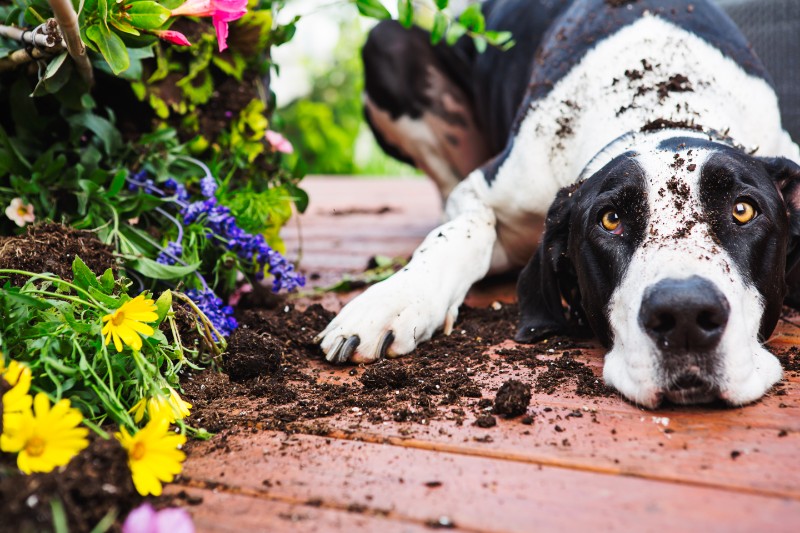
We do so much to make sure our pets are healthy and safe but is poison-proofing our homes one of them? Once we take a good look around, the number of products we have in our homes that can sicken or kill a pet can be downright frightening.
Just because your pet has never investigated the houseplants, cleaning products, or the contents of your purse or bathroom cabinets doesn’t mean they won’t in the future. March is National Poison Awareness Month, and what better time to address the serious issue of accidental pet poisoning and how to prevent it in your home.
A Discerning Look
Seeing your home from your pet’s point of view will help when it comes to removing or securing potential pet toxins, such as:
Household cleaning products like bleach, furniture polish, bathroom cleaner, oven cleaner, and more should be stored out of your pet’s reach. When you use these products, make sure the area is well ventilated and keep pets out of the room until you’re done.
Make sure all human and veterinary medications are kept off of counters, purses, and backpacks and stored in closed cabinets.
Personal care products such as toothpaste, lotions, and makeup
Food And Plants
Although most of the food in your fridge and plants on your windowsill is perfectly safe for your pet, there are some that should be kept away from pets at all costs. Chocolate, anything with the sugar substitute Xylitol, raisins/grapes, and alcohol are among the most dangerous things in your kitchen when it comes to pets. Plants such as lilies, sago palms, ivy, or rhododendron should not be in a home with pets.
Yard And Garage
Take a walk through the garage, garden, and any storage areas, and be on the lookout for any of the following pet toxins that you can secure or remove:
Bone meal and blood meal
Cocoa bean mulch
Compost
Fertilizers
Rat and mouse poison (rodenticides)
Snail/slug bait
Antifreeze is the most toxic thing you are likely to have on hand. The ingestion of a small amount of this sweet-smelling liquid can quickly kill a pet. Clean up antifreeze spills or leaks immediately and store unused portions well out of your pet’s reach. Better yet, switch to a less toxic antifreeze containing propylene glycol.
Signs Of A Pet Poisoning
Some signs of pet poisoning are subtle and can vary depending on the type and amount of poison ingested, and in some cases may take several days to develop. However, please call us right away if you notice any of the following symptoms:
Vomiting
Diarrhea
Drooling
Pale or yellowish gums
Fast/irregular heartbeat
Weakness or lethargy
Collapse
seizures/tremors
Loss of consciousness
If you have any questions or need additional help, please don’t hesitate to contact your team at The Pets Place Animal Hospital. We are here for you!










